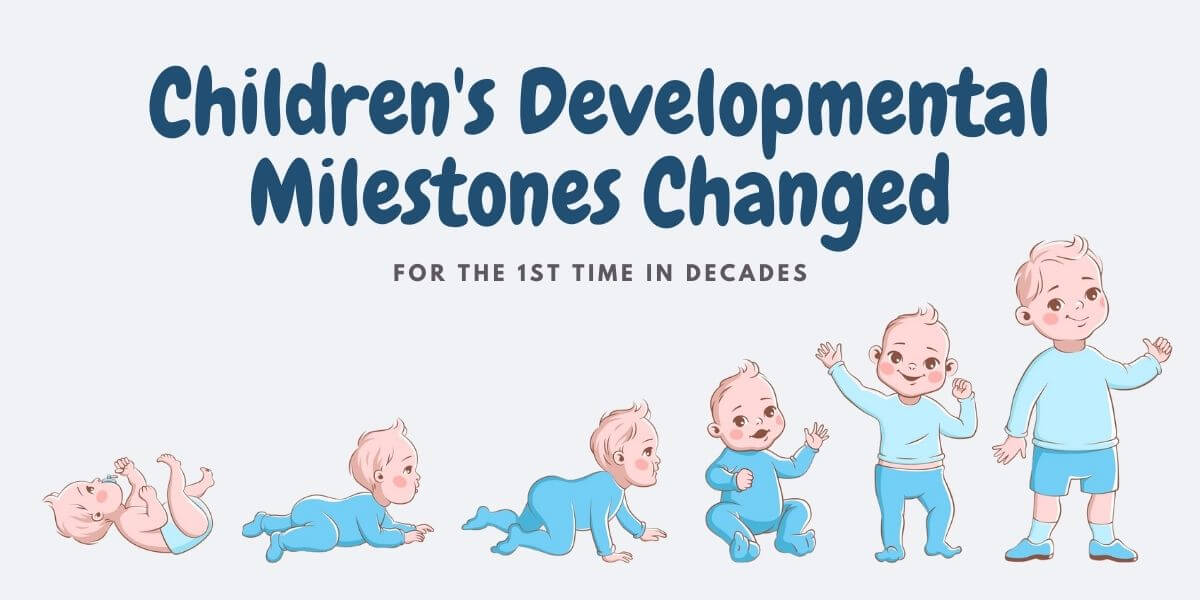Daycare And Young Children: A Critical Look At The Developmental Impact

Table of Contents
Cognitive Development in Daycare Settings
Cognitive skills, including language development, problem-solving, and critical thinking, are significantly impacted by a child's early learning environment. High-quality daycare programs are designed to foster these crucial skills.
-
Exposure to diverse learning materials and activities stimulates cognitive growth. Daycares often provide a rich environment filled with books, puzzles, building blocks, and age-appropriate toys that encourage exploration and learning. This diverse exposure helps children develop a strong foundation in various cognitive areas.
-
Interaction with peers and educators enhances problem-solving and critical thinking. Collaborative play and group activities necessitate negotiation, compromise, and creative problem-solving. Educators guide children through these processes, fostering essential critical thinking skills.
-
Structured learning environments can accelerate language development and literacy skills. Daycares often incorporate structured learning sessions that focus on language acquisition, phonics, and pre-reading skills. This early exposure can significantly enhance a child's academic readiness.
-
High-quality daycare programs often incorporate play-based learning which is crucial for cognitive development. Play-based learning methods allow children to learn through exploration and discovery, making learning fun and engaging. This approach is particularly effective in promoting cognitive skills.
-
The quality of the daycare significantly impacts cognitive gains. A daycare with qualified, experienced educators and a well-structured curriculum will yield better results than a lower-quality program. Parents should prioritize finding a daycare with a strong focus on early childhood education.
Social-Emotional Development: The Daycare Influence
Social-emotional development is equally crucial for a child's overall well-being. Daycare settings offer unique opportunities for children to learn and grow in this area.
-
Daycare provides opportunities for children to develop crucial social skills through interaction with peers. Children learn to share, take turns, cooperate, and negotiate with their peers, building vital social competence.
-
Learning to share, cooperate, and resolve conflicts builds essential social-emotional skills. Daycare environments often present situations requiring children to learn conflict resolution and compromise – valuable life skills.
-
Supportive caregivers help children regulate emotions and build self-esteem. Qualified caregivers provide a safe and nurturing environment where children can express their emotions and learn healthy coping mechanisms.
-
Exposure to diverse social interactions increases empathy and understanding. Interacting with children from different backgrounds broadens children's perspectives and promotes empathy and understanding of others.
-
The teacher-child ratio and caregiver training impact the quality of social-emotional learning. A lower teacher-child ratio ensures that each child receives individualized attention and support, enhancing their social-emotional development.
The Role of Play in Daycare Development
Play is paramount to a child's holistic development. Daycare environments should prioritize play-based learning.
-
Play is crucial for all aspects of development in young children. Through play, children learn about the world around them, develop their imaginations, and enhance their social, emotional, and cognitive skills.
-
Daycare provides ample opportunities for various types of play. Daycares should offer opportunities for imaginative play, social play, and physical play, catering to different developmental needs.
-
Imaginative play stimulates creativity and problem-solving. Pretend play allows children to explore different scenarios, develop their creativity, and practice problem-solving skills.
-
Social play enhances communication and cooperation. Playing with peers helps children learn to communicate effectively, cooperate, and resolve conflicts.
-
Physical play promotes gross motor skills and coordination. Activities like running, jumping, and climbing enhance physical development and coordination.
Potential Drawbacks of Daycare: Addressing Concerns
While daycare offers numerous benefits, parents should also be aware of potential drawbacks.
-
Separation anxiety is a common concern for both children and parents. Gradually introducing the child to the daycare setting and maintaining open communication with the daycare providers can help alleviate separation anxiety.
-
Exposure to illness can be higher in daycare settings. Regular handwashing, vaccinations, and proactive measures by the daycare can minimize the risk of illness transmission.
-
The cost of daycare can be a significant financial burden for families. Exploring different daycare options and considering government subsidies or employer assistance programs can help alleviate financial pressures.
-
The quality of daycare varies significantly; choosing a reputable provider is crucial. Thorough research, visiting potential daycares, and checking licensing and reviews are critical steps in selecting a high-quality provider.
-
Addressing concerns through open communication with daycare providers is important. Parents should feel comfortable communicating their concerns and expectations to the daycare staff.
Conclusion
Daycare can significantly impact a young child's development, offering benefits in cognitive, social-emotional, and physical domains. However, parents should carefully consider potential drawbacks and prioritize choosing a high-quality program that meets their child's individual needs. The teacher-child ratio, caregiver training, and the overall learning environment are all crucial factors to assess. Choosing the right daycare is an investment in your child's future. A nurturing and stimulating daycare environment can positively influence their development and set the stage for future success.
Making the right choice for your child's daycare is paramount. Research thoroughly, visit potential daycares, and ask questions. Consider the daycare's approach to early childhood development and how it aligns with your family's values. Remember, investing in a high-quality daycare is investing in your child's future. Start your search for the best daycare today!

Featured Posts
-
 Golden Knights Playoff Hopes Hang In The Balance As Hertl Faces Uncertain Future
May 09, 2025
Golden Knights Playoff Hopes Hang In The Balance As Hertl Faces Uncertain Future
May 09, 2025 -
 Municipales Dijon 2026 L Ambition Ecologique
May 09, 2025
Municipales Dijon 2026 L Ambition Ecologique
May 09, 2025 -
 Sensex Today Live Updates 100 Points Higher Nifty Above 17 950
May 09, 2025
Sensex Today Live Updates 100 Points Higher Nifty Above 17 950
May 09, 2025 -
 Handhaving Van De Relatie Brekelmans India Kansen En Bedreigingen
May 09, 2025
Handhaving Van De Relatie Brekelmans India Kansen En Bedreigingen
May 09, 2025 -
 The Trade War And Cryptocurrency Is This Coin Immune
May 09, 2025
The Trade War And Cryptocurrency Is This Coin Immune
May 09, 2025
